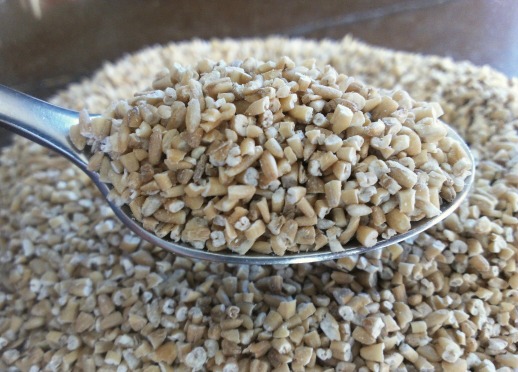Let's Talk Gluten-Free
Blog Image:

A lot of people have made the decision to go gluten-free, and if you’re not one of them, you may be wondering what it’s all about. The gluten-free diet seems to have become the latest trend: it’s estimated that around 1.6 million people in the US follow it without having been diagnosed with celiac disease (a severe gluten intolerance).
Gluten is a protein composite found in wheat and related grains, including barley and rye. It gives dough elasticity, which helps it rise and keep its shape, and often gives the final product a chewy texture.
Consuming gluten can cause illness for certain people. Around 18 million people in the US have some form of gluten intolerance, causing symptoms such as bloating or gas, diarrhea, fatigue, headache, and itchy skin rash.
Around one in 133 people in the US, or 1% of the population, has celiac disease, which is a more serious form of gluten intolerance. In celiac disease, gluten triggers an immune response attacking the lining of the small intestine. When that happens, your body can't effectively absorb nutrients into the bloodstream, which can lead to anemia, delayed growth, and weight loss.
In addition, the really bad news: if it's not treated, celiac disease can lead to other conditions, such as multiple sclerosis (MS), osteoporosis, infertility, and neurological conditions. The only effective treatment for celiac disease is to adopt a strict lifelong gluten-free diet.
So all of that is the bad news. But remember that only one in 133 people in the US will develop celiac disease. The question is, if you don’t have celiac disease, should you still follow a gluten-free diet?
There's definite disagreement on that question, especially now that certain celebrities who don't have celiac disease are lauding a gluten-free diet. For one thing, gluten may not be the villain. In November 2014, Medical News Today reported on a study in which investigators found that non-gluten wheat proteins (serpins, purinins, α-amylase/protease inhibitors, globulins and farinins) may be triggers involved in celiac disease.
Gaynor Bussell, a dietitian and spokesperson for the UK's Association for Nutrition, told Medical News Today: "Gluten is only bad for health if you are a celiac."
Lisa Cimperman, a spokesperson for the Academy of Nutrition and Dietetics, notes that "gluten is neither essential not detrimental to one's health or quality of diet."
However, some experts claim that following a gluten-free diet in the absence of celiac disease may actually be detrimental to health, as it can lack the nutrients needed to maintain a healthy, balanced diet. According to the Mayo Clinic, a gluten-free diet may lead to lower levels of iron, calcium, fiber, folate, thiamin, riboflavin and niacin.
If you think that you might have a sensitivity to gluten, your first stop should be your family physician. If he or she finds that you do have celiac disease, then a gluten-free diet is definitely in your future.
And if you just feel that a gluten-free diet is somehow better for you and want to pursue it, remember that the basis of a healthy gluten-free diet, as with any diet, should be natural foods. Lean meats and fish, fruits and vegetables, and low-fat dairy products are all safe for people with celiac disease. Grains that don’t contain gluten, such as quinoa and amaranth, are another healthy option. More and more products are being made with such grains, from breads and breakfast cereals to pastas.
At Bliss Shurfine Food Mart, we have options that can help you should you need to follow a gluten-free diet. Why not come in and check them out them today?
